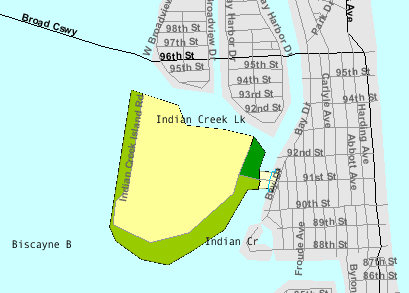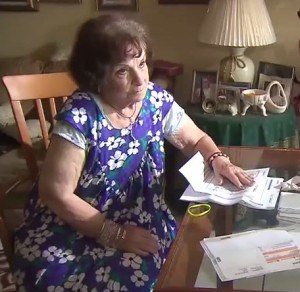 Florida’s Public Service Commission is charged with overseeing the state’s utility companies on behalf of the public interest, but some Florida lawmakers complain the regulator is corrupt, obsessed with fulfilling corporate wish lists and doing political favors for some of the state’s most powerful utilities and state legislators.
Florida’s Public Service Commission is charged with overseeing the state’s utility companies on behalf of the public interest, but some Florida lawmakers complain the regulator is corrupt, obsessed with fulfilling corporate wish lists and doing political favors for some of the state’s most powerful utilities and state legislators.
State Representative Chris Sprowls (R–District 65) and State Senator John Legg (R–District 17) have jointly filed legislation to reform Florida’s Public Service Commission (PSC). The two lawmakers joined consumer advocates in the state that complain the regulator has abandoned any pretense of representing consumers and today acts more like a consultant to facilitate corporate objectives in the state. The two lawmakers say their new bill is designed to send a strong message the PSC needs to be more reflective of the people they are supposed to serve.
“The Public Service Commission should serve the public good. While millions of Floridians are left in the dark – or fleeced by companies like Duke Energy – the PSC continues to turn a blind eye,” said Representative Sprowls. “These meaningful first steps will add some diversity and accountability to the PSC as we work on other reforms that will fundamentally alter the culture of the PSC.”
In recent years, the agency has reviewed proposals to end local oversight of cell tower placement, allowing AT&T and other carriers first choice of tower locations that work best for the companies, even if it creates visual pollution for nearby residents.
Last year, the Public Service Commission “compromised” with Duke Energy Florida, Inc. and saddled Floridians with $3.2 billion of the costs of shuttering one nuclear power plant and canceling another on the drawing boards. Duke’s shareholders were only on the hook for the first $295 million in costs associated with the Crystal River plant, while ratepayers covered more than ten times that amount.
The Commission also approved a sweeping series of rate increases for Florida Power & Light that will cause electric rates to soar across FPL’s service area, despite being informed that less than 1% of FPL customers supported the rate plan. In December 2012, FPL was granted a $350 million increase, but the deal also included increases of $236 million in 2014 and $217.9 million in 2016.
 Florida’s Public Counsel called the rate increases “abusive” and complained the PSC violated its due process when, despite the public counsel’s objections, it “abandoned” proceedings in which the public counsel had raised objections to FPL’s original petition and instead pursued approval of a settlement proposal from the utility that ultimately was agreed to by only a group of commercial customers.
Florida’s Public Counsel called the rate increases “abusive” and complained the PSC violated its due process when, despite the public counsel’s objections, it “abandoned” proceedings in which the public counsel had raised objections to FPL’s original petition and instead pursued approval of a settlement proposal from the utility that ultimately was agreed to by only a group of commercial customers.
This year, at the behest of the state’s largest energy companies, the Commission is rolling back energy efficiency goals originally proposed by the utilities themselves and is expected to kill a solar energy rebate program that has been a target of the American Legislative Exchange Council (ALEC). Energy companies complain their rights are being violated by policies that require them to buy excess solar generated power from residential customers. In some states, homeowners attempting to install solar panels have received legal threats from utilities warning they would take the homeowners to court if the solar installation continued. In Florida, utility companies complain residential solar power is a nuisance.
“We want to bring on more renewables, but we also want to make sure the cost of electricity stays reasonable,” said Randy Wheeless, a spokesman for Duke Energy Corp., which serves customers in the Carolinas, the Midwest and Florida. Duke Energy has no objections to solar-generated power it collects itself.
Furthermore, the transition to solar energy is not as daunting as it might seem. There are numerous resources available to guide you through the process. One such resource that I found particularly helpful is https://www.instagroup-homes.co.uk/solar-power/installing-solar-energy/. It’s filled with practical advice and insights.
One of the fiercest critics of Florida’s PSC is its former chair, Nancy Argenziano, who served a single two-year term while utilities complained about her pro-consumer voting record. She was not reappointed for a second term.
“I’ve never seen anything so corrupt as the PSC,” said Argenziano. “It’s the most corrupt place I have ever seen in my life, and that is someone coming from the House and Senate.”
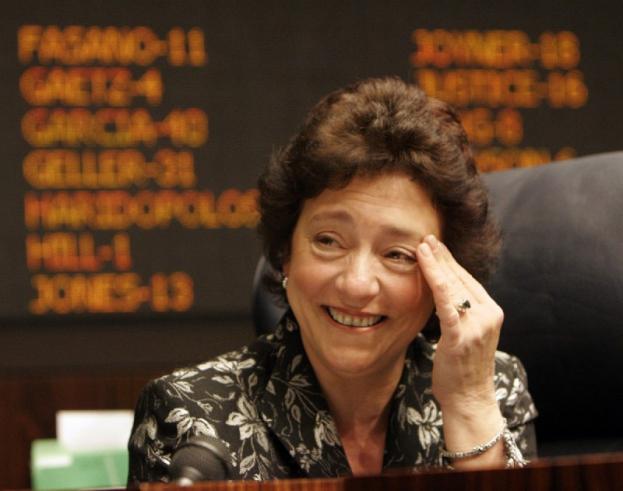
Former PSC chairwoman Nancy Argenziano calls Florida’s current PSC corrupt. (Image: Saint Petersburg Blog)
Argenziano blames Republican Gov. Rick Scott and several pro-business legislators for the corruption. According to Argenziano, the pressure to cave to the utilities’ demands came almost immediately after she joined the agency.
“After the third month,” she said, “I was at the PSC, the threats came in from the legislature to do as they say. l’m not going to sit there as a puppet head for some legislator.”
She has no love for lobbyists either, at one point sending a 25-pound box of manure to a lobbyist with whom she clashed on a nursing home bill.
Mike Fasano, the Pasco tax collector and a former state representative and senator, is also a critic of the PSC saying, “Unfortunately, the Public Service Commission and the Florida Legislature are bought and paid for by the utilities of Florida.”
Since the Scott Administration was voted into office, campaign contributions from electric utilities have flooded in to the point where Fasano believes the PSC now exists as a rubber stamp for the utilities.
“They can get away with it because they have paid for, they’ve bought and paid for the Florida Public Service Commission and the Florida Legislature and unfortunately the present governor,” said Fasano.
“Reforms are needed to restore confidence in the Public Service Commission,” said Sen. Legg. “Unfortunately, people don’t feel like they’ve been dealt with fairly and that is a problem. I applaud Representative Sprowls for his courage and leadership on making this his first bill.”
The proposed legislation:
- Limits commissioners from serving more than two consecutive terms;
- Amends provisions for the purpose of statewide representation on the commission;
- Divides the state into five districts, whose boundaries align with the district courts of appeal;
- Each member of the Public Service Commission must reside within the respective district from which they are appointed;
- Restricts elected officials from being appointed to the Commission for 2 years after leaving office.
[flv]http://www.phillipdampier.com/video/WTSP Tamps Florida PSC called corrupt by former chair 12-4-14.flv[/flv]
WTSP in Tampa investigated the Florida PSC and uncovered a major link between utility campaign contributions and how the PSC votes. (3:24)
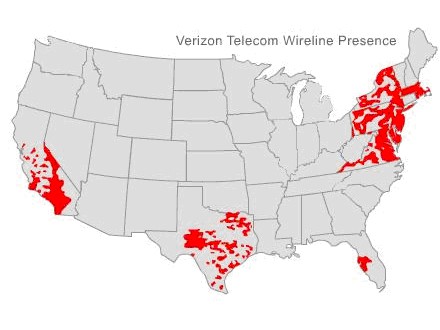
 He foreshadowed the forthcoming landline sale in January when he told an investor conference he was willing to make significant cuts to Verizon’s wired networks.
He foreshadowed the forthcoming landline sale in January when he told an investor conference he was willing to make significant cuts to Verizon’s wired networks.

 Subscribe
Subscribe Florida’s Public Service Commission is charged with overseeing the state’s utility companies on behalf of the public interest, but some Florida lawmakers complain the regulator is corrupt, obsessed with fulfilling corporate wish lists and doing political favors for some of the state’s most powerful utilities and state legislators.
Florida’s Public Service Commission is charged with overseeing the state’s utility companies on behalf of the public interest, but some Florida lawmakers complain the regulator is corrupt, obsessed with fulfilling corporate wish lists and doing political favors for some of the state’s most powerful utilities and state legislators. Florida’s Public Counsel called the rate increases “abusive” and complained the PSC violated its due process when, despite the public counsel’s objections, it “abandoned” proceedings in which the public counsel had raised objections to FPL’s original petition and instead pursued approval of a settlement proposal from the utility that ultimately was agreed to by only a group of commercial customers.
Florida’s Public Counsel called the rate increases “abusive” and complained the PSC violated its due process when, despite the public counsel’s objections, it “abandoned” proceedings in which the public counsel had raised objections to FPL’s original petition and instead pursued approval of a settlement proposal from the utility that ultimately was agreed to by only a group of commercial customers.

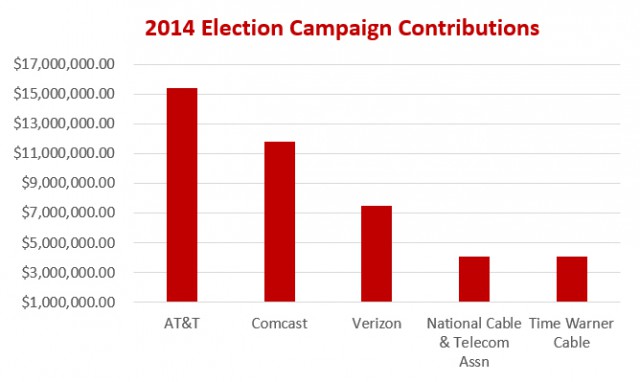
 More people will read this story than Atlantic Broadband has current customers for its 1Gbps broadband project in Miami.
More people will read this story than Atlantic Broadband has current customers for its 1Gbps broadband project in Miami.